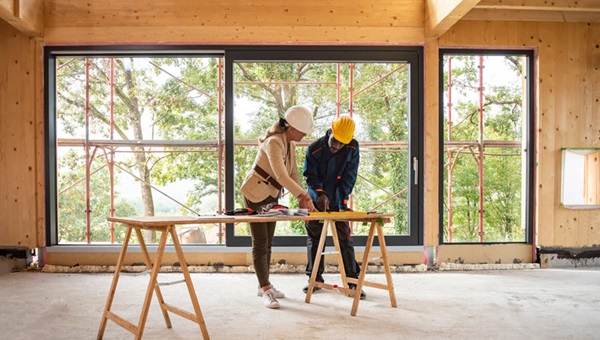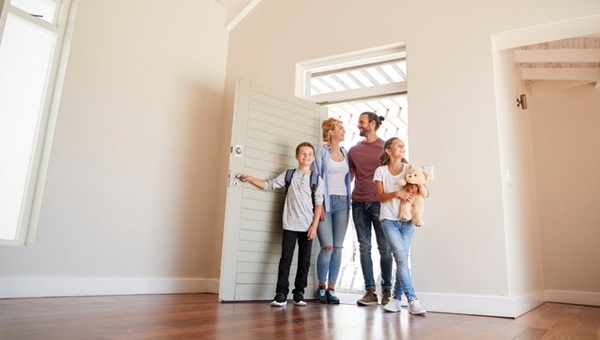How do I get started on my property buying journey?

Choosing a home and suburb
Choosing where to buy and what to buy all comes down to your long-term home ownership goals. If you’re looking for an investment property, your criteria will be different to that if you are wanting a home to make your own.
If you are looking for a home for yourself choosing a home and suburb depends on your lifestyle, long-term goals and what you can afford. A first home is often a stepping-stone along the home ownership path, not the final destination.
Ask yourself how long you plan to live in the home? Is it your first step or are you settling down for the long haul? How many people will be living in the home? If it will just be you, do you need a four-bedroom home or will a villa or unit do for now? Do you see yourself starting a family in this home? If so, consider buying somewhere close to schools, public transport, parks etc. How far are you willing to travel to work? Do you want to be close to lifestyle hubs, the beach or city? Does your lifestyle give you time to look after a home and garden on a larger block or do you need something low maintenance? These are the types of questions you need to ask before choosing a type of dwelling and suburb.
It is important to research a suburb before buying. You want to familiarise yourself with the median house price in the area, what properties are selling for, has there been growth or decline in price and how many listings there are for sale in the area. If one area is too expensive for your budeget, a neighbouring suburb may be more affordable while still offering similar access to features you want. reiwa.com’s suburb profiles can give you the insight you need to feel confident when researching suburbs.
Usually, most people have an idea of the suburbs they would like to buy in, then they begin their search for the property.
You can explore listings for sale on reiwa.com, as well as save your favourite searches, and sign up to alerts so you can get notified when a similar listing is added or when something changes to the listings you have already saved (ie the price is reduced).
To sign up to alerts, log into reiwa.com now.
And if you find a property you are particularly interested in you can request a free CoreLogic report with an estimated valuation.
What should I look for when buying my first property?

When looking for your first home it can be hard to differentiate what your heart wants from what your head is telling you. It is challenging to say no to the houses that may be out of your budget, but you dream of living in.
Typically, your first home is usually from the lower end of the market, and when you come across a bargain, it is generally wise to consider it.
It’s important to buy smartly, but also purchase a property you can see yourself calling home.
During the decision-making process, you should be looking for the following:
- A property within your budget
- A suburb that suits your lifestyle and goals
- A property close to the amenities you need
When a property catches your eye, use our interactive maps to view factors such as:
- Property boundaries,
- Land size,
- Underground utilities,
- R code zoning
- Risk prone areas
- Nearby schools, cafes and restaurants.
When it comes to assessing the condition of a property, it is always a good idea to have a professional look at the following:
- Water stains, corrosion and mould
- Ceilings
- Cracks in the walls
- External roof lines and roof gutters
- Water pipes and drains
- Pests/insects
- The land (distance from other properties, is the area prone to fires/flooding?)
Remember that some issues are cosmetic and can be easily fixed. Structural issues may require a greater financial investment.
Should I build a new home or buy established?

When it comes to home ownership you have the options to buy brand new, buy land and build from scratch or buy an established home. Ultimately the decision comes down to your preferences and whether you want to take advantage of any government incentives available.
There are advantages to both that you should consider.
Buying/building a new property
The incentives
There are many government incentives for buyers of new homes, the biggest being the First Home Owner Grant, which is only available if you build a new home or buy a newly built home. In WA, eligible first home buyers can receive up to $10,000. There are also concessions available to you, such as reduced stamp/transfer duty costs.
You may also find that builders are offering various incentives.
You can build what you like
Building your own home means everything is tailored to suit your wants and needs. You have the ultimate decision to what goes where and how you want it to look. The home is yours and you have control over all major decisions.
New homes are easier to maintain, and you can be confident that you won’t have to spend time or money fixing it when you move in. If any issues or defects do arise, these are generally covered under warranty.
Newer homes are also more energy efficient, which will be cost effective when it comes to paying bills.
It can take time
Finding a block of land, choosing a home design and then waiting for it to be built can take time. Sometimes market or environmental conditions result in significant delays.
Buying established
Usually closer to the CBD and amenity
Buying an established home means you have more control over the suburb you want to live in and greater choice of amenity. This means you can live closer to the CBD or close to well established facilities like shops, schools, cafes and restaurants, nightlife and public transport.
Investment potential
Buying in a good location will have investment potential in the long run, as the land you own grows in value. You might see a house that needs work in the perfect location and decide to renovate it and turn into an investment down the track.
Besides the location, established properties generally sit on larger blocks of land, because land sizes used to be bigger than what current house and land packages offer. This may also offer the potential so subdivide and develop in the future.
What you see is what you get
Buying established property is a faster process than building, and you also have the benefit of seeing what you get. You can visit the home and visualise living there, as well as inspect it for any hidden defects or flaws.
You may find some older established homes do not have all the features of new homes, such as theatre rooms, two bathrooms, open-plan living areas or walk-in robes. You may be able to renovate to add these features. If you plan to do this, make sure you find out if renovations are possible.
Essentially, buying new or established have their pros and cons and the choice comes down the buyer’s wants and needs.
How do I sort out my finances?

Getting your finances in order is an important part of the property buying journey. You need to make sure you have a good idea of what you can afford, what kind of loan you can get and how you will manage the ongoing costs associated with owning your own home.
Navigating the financial component of owning property can be daunting, so it’s a good idea to seek professional advice.
We spoke to BankWest and they provided the following tips for sorting out your finances.
First home buyers guide finances
It’s never too early to start getting your finances in order. When it comes to buying a house, as soon as the idea pops into your head, it’s a great idea to touch base with a Home Finance Manager (HFM). This way you can discuss your potential borrowing capacity, which will help establish your maximum budget as well as any deposits required so you can prepare your savings plan. Pre-approvals are valid for three months so once you have your deposit and are ready to actively start looking at houses, this would be the time to lodge the pre- approval application.
It starts with getting a better understanding of your financial position. Have an informal discussion with an HFM around your potential borrowing capacity, maximum budget and required deposits as early as possible. It’s during this initial discussion that your HFM can help you to tailor a savings plan towards your deposit requirement. If you need to increase your borrowing capacity, they can advise if any existing credit facilities need to be repaid and closed off before applying for the housing loan.
There are four mistakes first home buyers commonly make;
- First home buyers often have a purchase price in mind which may not reflect their actual maximum borrowing capacity. You should discuss your borrowing capacity well before you get to this point to eliminate any surprises.
- Many first home buyers aren’t aware of all the options that might be available to them to help them get into a home sooner.
- It’s quite common for first home buyers to be gifted funds or perhaps they may sell an asset such as a car in order to cover their required deposit. There are certain criteria that must be met when it comes to the deposit requirement and the criteria may vary depending on each individual scenario. This is something that can be discussed in the initial informal discussion with your HFM.
- First home buyers often ignore their protection needs, so it’s important to not only be able to afford to service your loan and keep your house, but to also be able to do it in the event of any accidents, illness or injury.
- I always recommend first home buyers start depositing the approximate amount of the proposed mortgage repayments plus other expenses into a savings account. This will help you manage your budget and achieve the five per cent genuine savings deposit that is generally required when purchasing your first home.
- Do your homework on the type of purchase scenario to best suit your situation. Each purchase scenario comes with its own set of pros and cons.
- If you know the area you want to live in, a good idea is to rent a home there first to understand the cost of living and associated expenses of the area as it can differ place to place depending on local rates and travel costs to and from work/schools. Importantly, it provides you with good insight into the location before locking yourself into an area that may not suit you in the long-term.
Taking out a mortgage is one of the biggest financial decisions you’ll ever make, which is why it’s important to ensure all of your bases are covered. A financial advisor can help tailor an income protection/insurance package to help eliminate any gaps for unplanned events such as falling ill or having an accident where you may not have a sufficient amount of leave to cover you. It’s a scary situation, but a responsible plan to have when taking out a new mortgage.
Financial advisors can also assist with budgeting tips, help you establish your short and long term financial goals and make you aware of additional strategies, such as first home buyers super contributions, which can help you save on tax whilst boosting your deposit.
Your first home is probably one of the most expensive purchases you will ever make and can be a long process.It is important to understand the process and all the financial aspects of buying property before you begin searching.
The deposit
The deposit is a percentage of the property’s purchase price and accounts for your contribution to the property, giving you part ownership of it.
The more you save for a deposit, the less you have to borrow from the bank, giving you more leeway to take care of any extra costs that come with buying a house.
Typically, you will need a 5-20 per cent deposit, but this could take years to save. Fortunately, there are ways to get your foot on the property ladder without having substantial savings.
Lender’s Mortgage Insurance (LMI)
When a deposit is less than 20 per cent of the property value, the lender will require you to pay a one-off mortgage insurance fee. This is called Lenders Mortgage Insurance. It is designed to protect the lender if you fail to make your home loan repayments.
It is an extra cost, but it does help you get a loan when you have a smaller deposit. If you cannot pay it upfront it may be added to the amount you borrow.
What is a guarantor?
Generally, a guarantor is a third party, usually either a parent or family member. If you cannot offer the required deposit, a guarantor might be the solution by providing the lender with extra security. Usually, the guarantor's existing equity on their property represents this security.
A guarantor is not expected to make any repayments on your loan, but if something were to happen to the borrower, the lender will turn to the guarantor to make the repayments.
Having a guarantor may mean you can borrow without paying Lenders Mortgage Insurance.
See what grants are available
If you are a first home buyer and planning to build or buy a newly completed home, you may be eligible for a grant such as the $10,000 First Home Owner Grant (FHOG). This may count towards your deposit. The grant is not available for purchases of established homes.
As mentioned previously, you may also be eligible for stamp/transfer duty concessions.
You may also be eligible for a grant from the First Home Buyers Assistance Account. Eligible applicants receive up to $2,000 to cover some of the incidental expenses associated with buying a home, such as mortgage registration, settlement fees, valuation fees and inspection fees.
Keystart
When looking to get a home loan people usually think of banks, but there are other options out there.
Keystart aims to make affordable home ownership a reality through a range of loans, such as a low deposit loan, shared ownership loan or the Urban Connect loan for people looking for inner city living and lifestyle close to transport hubs.
It accepts deposits as low as 2 per cent, does not charge Lenders Mortgage Insurance and no savings history is required. If you decide to build you can use the FHOG towards the deposit.
They are a transitional lender and encourage you to refinance with another lender when you are ready to do so.
Be aware that the interest rate charged is higher than your standard lender and there are income limits and caps on the property purchase price. However, it may be just what you need to get you started on the path to home ownership.
How do I get the most out of a home open?

While the process of attending home opens can quickly become arduous, it’s worth taking them seriously to ensure you get the most out of the inspection.
Here are three of our top tips for making the most of a home open.
1. Know what you want
When you’ve reached the point in your property journey that you’re ready to seriously consider buying your first home, it’s important to approach home opens with a business mentality.
Before viewing the property, make a comprehensive list of what you want. Start with the non-negotiables. What are you unwilling to compromise on? This could be anything from the number of bathrooms, to the amount of storage space of whether or not the home has ducted airconditioning.
Once you have the non-negotiables sorted out, compose a list of the ‘nice to haves’. The items or features you’d like to see in the property, but that aren’t complete deal breakers. Don’t focus too much on the aesthetics of the home, this can be easily changed, you want to consider the bigger things like layout, size and location.
Having a clear understanding of your non-negotiables and nice-to-haves will save you from wasting valuable time on a property that isn’t the right fit.
2. Ask the agent plenty of questions
One of the best things about attending the home open is that you get the opportunity to speak to the agent who is selling the property in person. The opportunity to ask them questions and find out as much as you can about the property is invaluable and one you should take seriously when you find a home you’re genuinely interested in.
Local real estate agents are experts in their field and will have a unique understanding of the area and what it can offer buyers. Feel free to question the agent about what extra fees may be included in the sale of the home, what the strata implications are (if any), whether the home in a safe area, is it a location that is conducive to your lifestyle and if there are any drawbacks to the property that you should know about.
It’s always a good idea to ensure the agent is a REIWA member too, as they will be required to disclose any ‘material facts’ relevant to the property if so. This means that when buying the property you can feel comfortable that you know exactly what you’re getting.
3. Assess more than just the inside
When viewing a property for the first time it’s important to remember that the inspection is about more than just the interior of the home. You want to properly assess everything, including the gates, fences, brickwork, gardens, roofing, neighbouring properties and more.
When you buy a home you’re buying everything that comes along with it. Thoroughly assess the location, take a walk up the street or a drive around the block to get a better understanding of what the area is like. If you have children, find out where the nearest school is and see if it’s suitable for your family.
Location can also make a big difference to the long-term price growth of your home. While you may intend to live in the property for a long time, it’s always good to keep in mind its re-sale potential and how the street or surrounding area may impact the property’s value.
View reiwa.com’s suburb profiles for more information about your local area.
Home opens provide you with a valuable opportunity to get a thorough overview and insight into the property. Take your time with it and be sure to view the property a couple of times before making a final decision.
How do I make an offer to buy a property?

Making an offer on your first house can seem daunting, especially if you’re new to the property scene. So how do you know if the price is right?
Research the market
Having a good knowledge of the housing market is a good start, in fact it’s pivotal. Research the area you want to buy in, and compare the value of your prospective house to similar ones around it. You can’t put an offer or negotiate the price of a house if you don’t have a ballpark figure of how much the market is indicating it’s worth.
Look at other recently sold properties in the area, what did they sell for? How long were they on the market? Of course, you won’t be able to determine its true value, but doing this research will give you more knowledge and power when it’s time to negotiate.
By also researching market trends in your suburb, you will gain an idea of what to expect in the future. Buying in a suburb with a good annual growth track record is something to consider, should you wish to sell your home later on.
Although the property market is rather difficult to predict, doing the above research should give you the basic understanding to confidently make that first offer.
Use a buyer’s agent
A buyer’s agent can really help with your property purchase as they represent you, the buyer, during the negotiation process to ensure you get the house at the right value.
They can also help with the research aspect, and can give you a more validated estimation of the property’s worth. As a first time buyer, a buyer’s agent can streamline the process and can take the guesswork out of what price to settle at.
A buyer’s will also help you with your house hunt, and suggest properties that meet your criteria, saving you time.
Research the property
A house is a very large asset, which comes with many structural aspects. Researching the property itself is just as important as researching the suburb, especially when it comes to determining its worth.
To avoid buying a house with potential issues, do yourself a favour and ask the below questions:
- Why is the property on the market?
- How long has it been on the market?
- Does the property have any issues, such as building defects or pest problems?
- How old is the property and does its condition represent its age?
- Will anything need to be fixed in the next few years?
- Has there been any other offers made on the property?
By looking at all of the above, you will rule out any hidden problems with the property that could cost you financial fortune down the track. It will also give you the advantage of being able to negotiate a price that reflects the house condition.
What happens at settlement?

The settlement process can sound somewhat daunting if you don’t understand what it entails. With the right preparation and knowledge, settlement day is something to look forward to, as it marks the start of the next chapter in your life.
What is settlement?
Property settlement is the legal and official process of when full ownership of the property is transferred from the seller to you, the buyer.
Generally there is a settlement period which gives you time to organise your finance, paperwork and everything you need to settle the transaction. When the settlement date comes around, the whole property transaction officially ‘settles’.
It is important that you discuss and work out an appropriate settlement date with your lender and settlement agent before signing a contract. Typically, a minimum of six weeks is required for settlement, but you should not rush the settlement date, and ensure you give yourself enough time so that all relevant paperwork can be approved and looked at as thoroughly as possible.
What is settlement?
Who attends the settlement?Generally, in Western Australia the process is facilitated by the following people:
- A representative from the buyer’s settlement agent
- A representative from the seller’s settlement agent
- A representative from the buyer’s lender
- A representative from the seller’s lender
Sometimes, the buyer and seller themselves don’t attend – instead, their settlement agents act on their behalf.
By now you should have enough of an understanding to help you better grasp the home buying process. For a first time buyer, the process can be understandingly intimidating, but by doing your due diligence and learning the ins and outs of buying property, this can help streamline the process immensely.
Are you ready to look west for property? Get in contact with a REIWA agent or browse what’s for sale in Perth.
